- Home
- Captain W E Johns
No Rest For Biggles Page 2
No Rest For Biggles Read online
Page 2
Somewhere behind the Hastings, flying high, occasionally making contact by code radio, was the old Air Police Halifax, in the hands of Algy and Bertie. They were an essential part of the scheme, and their job, by no means an easy one, was to keep in touch with the Hastings without this being apparent to possible watchers on the ground. Actually, this was the weak link in the plan, and they all knew it. Should the Halifax come too close it would look suspicious; on the other hand, to remain at too great a distance might easily result in losing touch with its consort; for radio contact, even in code, would have to be kept to the absolute minimum. There was no way out of this difficulty. No arrangements had been made beyond the point of the Hastings being forced down, should that happen, for the simple reason that the next move would depend entirely on the circumstances in which this occurred.
Let it not be supposed that Biggles was anxious to be forced down, although he knew he was inviting trouble and realized that this might well happen. He would, he had said, avoid it, if it was possible to do that without exposing his purpose to the enemy and thus putting him on his guard. His immediate concern was to confirm that the missing Hastings had not drifted off course by accident. If he could also ascertain the direction it had taken so much the better. The
17
two compasses should answer these problems. Having proved, or disproved his theory, the next step would have to be considered. If he went down Algy would know, and thereafter use his discretion in the matter of following him up. The dangers of the operation were plain to see. First, there was the possibility of structural failure in the air, due to sabotage, causing the machine to fall out of control. Hence the parachutes. Secondly, the Hastings was a big machine, and to put it on the ground outside an airfield without a crack-up would be a hazardous business. Finally, should these perils be overcome there would be the unknown quantity waiting on the ground.
In the matter of landing, the aircraft would need a run of well over a thousand yards, and the chances of finding such a place, in nature, free from obstructions, was remote. Biggles's only consolation was, the enemy must be aware of that and make provision for it. His scheme rested on the assumption that this was the case, otherwise a bad crash was inevitable. Emergency airstrips there were, in Africa, Biggles knew. Many had been put down during the war when men and materials from the U.S.A. were being flown from Dakar to the Middle East. Most of these, he imagined, would now be overgrown; but he had borrowed a wartime route map from the Air Ministry and memorized those that fell anywhere near his course. The others had done the same.
The Hastings, now at 8,000 feet, droned on at cruising speed across a sky in which there was not a vestige of a cloud. Below lay Africa, most of it in this area just as it was in the days when that intrepid explorer, Mungo Park, had set out, alone, to cross it on foot. Open sand, scrub, sparse timber, swamps and lakes, made up the panorama. Ahead and to the south
18
lay the great equatorial rain forests, with the River Niger and its tributaries winding through them, looking for a way to the sea. Farther on were the more settled areas near the coast.
The next hour, Biggles thought, would provide the answer to the mystery, one way or another, for after that, over primeval forest, there could be no question of getting down. He was right, too, although with the great black mass of jungle spreading like a stain across his course he was just beginning to fear that his plan had misfired when it developed exactly as he had anticipated. The needle of the standard compass began to move, indicating a reading different from the insulated instrument.
"Here we go," he told Ginger. "This looks like it." Four eyes watched the instrument panel, Biggles maintaining his course as shown by the standard compass. "By thunder !" he cried presently. "Where the deuce are they taking us? I expected a deviation, but nothing like this."
The insulated compass told Ginger that they had swung from a course slightly north of west to due south-west.
"I don't know what's going, to happen next but you'd better be ready to move fast," Biggles told him tersely, snatching glances at the terrain below. Ginger nodded.
Ten minutes passed.
"If we hold this course much longer we shall be in sight of the Atlantic," muttered Biggles. And at that moment the rev. counters began to fall back. The engines spluttered. Not one. Not two. But all of them.
"We've had it," announced Biggles grimly, his eyes scanning the ground with that anxiety known to every
19
pilot faced with a forced landing over unfamiliar territory.
The four Bristol Hercules engines seemed to be choking. Biggles, now losing height, juggled with his throttles, but it made no difference.
"What's causing it?" asked Ginger, in a tense voice. "I haven't a clue. But as I have plenty of petrol something must be affecting the ignition."
Ginger's eyes went round the sky, perhaps seeking inspiration, for he hardly expected to see anything. Suddenly they stopped, saucering. His body stiffened. "My gosh!" he exclaimed. "There's a machine coming down ahead of us !" Biggles looked. He stared. He would have said he knew every machine on wings, but this type was one unknown to him. "What do you make of it?" he asked.
"Nothing," answered Ginger. "I don't know it. Do you think it has anything to do with what's happening?"
"Yes. Don't ask me how. The force must be strong, which means close, to affect the engines like this. I've got to go down. Warn Algy in the code. Make it quick, and brief." Ginger, moving fast, complied.
Biggles, grim-faced and tight-lipped, losing height, began to circle, looking for the best place within gliding distance to get down. Whatever lay below he had to go down. From his altitude, now, he had a range of five or six miles. '
Ginger, out of the corner of his eye, saw the unknown machine drifting nearer. It was a twin-engined, low-wing monoplane of medium size, able to carry six or eight passengers. It bore no identification marks, military or civil. Its general behaviour now was that of a dog shepherding a stray sheep.
Biggles, going on down, saw what he hoped to find.
20
If it wasn't actually a landing strip it was at least a stretch of open ground. So close did it run to a broad belt of timber that he might have overlooked it had not his attention been drawn to a smudge of smoke at one end of it. Apart from the smoke there was no movement, no sign of life. In the ordinary way he would have taken the smoke for a native fire. But not now.
"They're showing us the' way in," he muttered, concentrating on his approach, for without power, should he misjudge his distance, he would get no second chance. "You've given our position to Algy?" he went on, turning, his eyes still on the ground,
"Yes."
"Right. Get ready to chuck that compass overboard. Not now. They'd see it fall. Wait till I'm low over the trees."
"Okay."
"Get out of your brolly. You won't need it now. Take it with you or they'll know I had a passenger and look for you."
"I get it."
"This is the drill. I shall try to touch down well away from the smoke and finish broadside to the timber. As soon as we stop, jump to the trees and lie low. Never mind me. Watch which way they take me. As soon as things are quiet move off and try to contact Algy. You might find a flat patch big enough to bring him down although I didn't notice one within gliding distance."
"Okay." Ginger put his bag handy and made ready to move quickly. It was all part of the pre-arranged procedure should Biggles's plan work out—as, in fact, it had, so far. Biggles slipped off his last few hundred feet of height, straightened the machine—
skimmed the trees
—Ginger tossing the compass overboard—and presently flattened out over the strip of sun-dried grass. The wheels bumped gently, bumped again, settled, and the aircraft trundled on to the far end of the runway. At the last moment Biggles slewed round so that the exit was on the side nearest the trees.
"Watch your step," said Ginger anxiously, and jumped. He stumbled, recovered, an
d shot into the undergrowth like a hounded rabbit. A few yards back, and perhaps a score of paces from the Hastings, he turned and went flat to watch proceedings. In wondering what was going to happen next he was prepared for almost anything—except what did happen.
He was not surprised to see the unidentified plane coming in to land. That was to be expected and he paid little attention to it. He was more occupied with watching an open jeep that came racing along the side of the forest. There were six men piled in it. All carried rifles. That, too, was not unexpected. What shook him, and shook him to -the core, was the fact that they were all black. Moreover, they wore uniforms, mostly green. One was smothered in gold braid.
In wide-eyed amazement he watched the jeep dry-skid to a stop by the Hastings and the crew leap out. This was so far outside his calculations—and Biggles's too, he imagined—
that he didn't know what to make of it. Not for a moment had it been supposed that they were dealing with anyone but white men. The first thought that crashed into his head was that they had made a major blunder. The whole scheme had come unstuck. They had landed at the wrong place. These, obviously, were French colonial troops of some sort on patrol.
He was soon to be disillusioned.
Biggles was standing by the nose of the machine casually lighting a cigarette. Whatever astonishment
22
he felt at this strange turn of events—and the shock must have been as severe to him as it was to Ginger —he didn't show it. Tossing the dead match aside he greeted the new arrivals with a cheerful nod.
The soldier in the gold braid, presumably the officer in charge of the party, strode up to him and addressed him in a manner so peremptory that Ginger frowned. His English, with a pronounced American accent, was fluent. "You're under arrest." he announced. Biggles's eyebrows went up. "Indeed? For what?"
"For landing on Liberian soil without a permit."
"How do you know I haven't a permit," asked, Biggles calmly.
"Because one hasn't been issued."
So that was it, thought Ginger swiftly. There had been a mistake. They were down in Liberia, the country on the West Coast of Africa that had been handed over to the negro slaves of America on their emancipation. He knew little about the country, and what he did know was not good. It was the blacks' own territory, and they could do what they liked in it without interference from outside. Most travellers kept clear of it, because the
"government", it was said, by making laws as it suited them, derived an income from fines imposed on visitors who appeared able to pay them. Nobody really knew what went on behind the scenes in the Black Republic. At least, that was how Ginger understood it. Ile imagined that Biggles would now be tried, fined, and on payment be allowed to go free. How wrong he was, was now revealed by the officer's next order.
"Tell Colonel Rayle to get out," he said, loudly.
Ginger could hardly believe his ears. How on earth could this overdressed popinjay know about their alleged passenger?
"Colonel Rayle?" inquired Biggles. "Who's he?" 23
This reply, casually given, seemed to take the man aback. He stared. He then went into the machine, and returned looking even more puzzled. "Are you by yourself ?" he asked. Biggles smiled. "Looks like, it, doesn't it?" "You're the pilot?"
"Machines don't fly themselves."
The black's eyes half closed. "Smart guy, eh. Well, don't try your sass on me. What are you doing? Where are you going?"
"I was taking this machine to Dakar when all my engines suddenly died on me. Never saw such a thing, in my life. How far away am I from help?"
"Some way." Again the officer eyed Biggles suspiciously. "You sure you don't know nothin' about Colonel Rayle ?"
"Never seen the man in my life. Why?"
"Nothin' . . . nothin'. You come with us." The man indicated the jeep. "Git aboard."
"What about my machine?"
"We'll take care of that."
Biggles shrugged. "If that's how you want it."
"It is. And I'll tell you something else, brother. Don't try to come back here by yourself because these woods ain't safe for white men. There's a lot of bad characters about who don't like 'em."
Biggles said no more. He boarded the jeep. The black crew followed, with the exception of two who remained behind. As the jeep started off down the side of the forest these took heavy knives from their belts, and cutting bunches of grass and small scrub threw the stuff on the upper surfaces of the Hastings with the obvious intention of hiding it from air observation. From time to time, Ginger noticed, they threw glances towards the forest. The reason for this, or so it seemed, became apparent when a black, practically naked but
24
carrying a spear, appeared on the fringe some-distance away. For a moment he stood watching. The, men by the aircraft shouted something, whereupon he faded into the shadows, to be seen no more.
The blacks, their work finished, strode off, following the track of the jeep, leaving Ginger alone with the heat, the flies—and what else? He didn't know; which was, perhaps, just as well.
For a little while he sat on his brolly, considering what he had seen and trying to make sense out of it. At the same time he tried to visualize the country around as he had last seen it from the air. At last, finding the insects a torment, he picked up his bag and started walking.
GINGER WAS RIGHT in assuming Biggles's astonishment
when he saw the colour of the occupants of the jeep. No other thought occurred to him than his plan had gone adrift, and either he had landed in the wrong place or by an offchance these black troops had arrived on the scene before the people responsible for the forced landing; for that he had been brought down by some unknown device was never in doubt. However, the mention of Colonel Rayle soon showed him which way the wind blew, although he was still at a loss' to find any connexion between these apparently ignorant Africans and the sinister service to which he was, or supposed himself, opposed. It certainly seemed impossible that they could be associated with the machines that had disappeared nearer the eastern side of the continent.
All he could do was hope that his captors, on finding him alone in the plane, would be as much at sea as himself; that they, too, would think they had made a mistake in attacking the wrong plane. What else could they think? he reasoned. Anyway, he was in no condition to argue. Nor, in fact, did he at this juncture want to escape. He had, after all, deliberately put himself in the position in which he now found himself. His assignment was to find out what was going on,
26
and he would not be likely to do that by running away. As to his locality, he could well believe that he was in the hinterland of Liberia. Certainly he was not in British territory, although Sierra Leone and the Gold Coast could not be far away. So he made no protest about getting into the jeep. His chief worry was Ginger, in view of the remark about bad characters in the bush, which might be a bluff or might equally well be true. It had obviously been made to deter him from attempting to escape. The airfield puzzled him, for it was hard to believe that a piece of open ground, quite free from obstructions, could occur naturally so close to heavy forest even though the bare patch was light sandy soil, as he could see it was. He could only conclude that the land had either been burnt off at some time by natives for purposes of cultivation, or else this was one of the emergency landing places provided during the war for pilots on the ferry service between America and Egypt. Any secondary growth that had started afterwards could easily be cut.
The jeep did not stop when it reached the far end of the airstrip but ran on over a rough track through sheer jungle for about half a mile before again entering open ground which was, he perceived at' once, a large compound, fenced with barbed wire. Barbed wire! This astonished him. It also upset his theory, for he had convinced himself that he was looking for a mobile establishment. Wire suggested a permanent base, as did a number of huts, large and small, although they were built in the native style with native materials. One, of frame
timber with a verandah, was large, and constructed with a gabled roof in European fashion. This, he supposed, was the headquarters, a belief that turned out to be correct when the jeep turned towards
it.
Biggles's eyes were busy. On the far side of the compound he noticed that a small piece had been partitioned off, also with barbed wire. There was a fair-sized hut in it. From this now appeared, as if attracted by the jeep's motor, several white men. Being some distance off Biggles couldn't see details, but they appeared to be, if not actually in rags, in a disreputable state. They came to the limit of their fence and stared at the jeep. One waved. Biggles waved back, his expression hardening, for it was clear that the men were prisoners.
His reconnaissance ended when the jeep stopped at the door of the long building, at the door of which stood a sentry. Here he was invited curtly to get down. Having no alternative he complied, promptly to find himself being searched, everything being taken from his pockets by the officer in charge of the party. Biggles had to get a grip on himself to submit to this, but the situation called not only for self-control but prudence. He protested as a matter of course. "What is the meaning of this outrage?" he asked indignantly.
The question was not answered, so he said no more, his real concern being for his gun, which was more likely to be found should he attempt to resist. As it was, to his satisfaction and relief, the searcher went no lower than his trousers pockets. This irritating ordeal over he was escorted into the building to find himself in a crudely furnished room of some size. At one end was a trestle table. Behind it, watching Biggles'
s entrance, sat a man, a negro. Conspicuous on the wall behind him was a picture, a cheap framed print. It was a portrait, a garish study of a black man in uniform; and into Biggles's eyes as he looked at it dawned the light of understanding, for he recognized the person portrayed. It was Christophe of Haiti,-sometimes called the Black Napoleon. A pure28

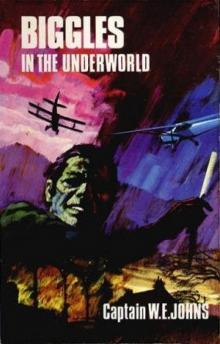 Biggles in the Underworld
Biggles in the Underworld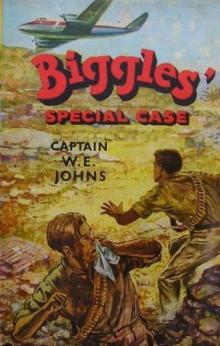 Biggles' Special Case
Biggles' Special Case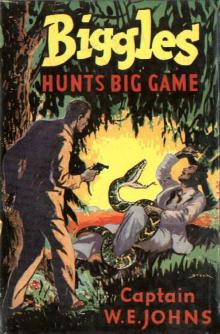 34 Biggles Hunts Big Game
34 Biggles Hunts Big Game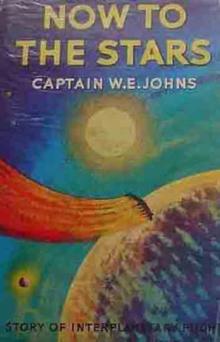 03 Now To The Stars
03 Now To The Stars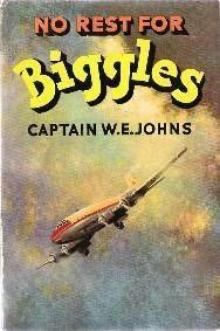 55 No Rest For Biggles
55 No Rest For Biggles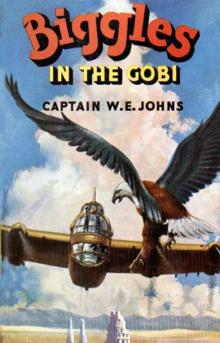 46 Biggles in the Gobi
46 Biggles in the Gobi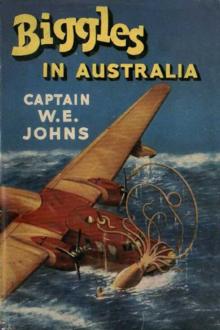 52 Biggles In Australia
52 Biggles In Australia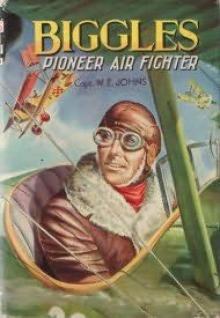 51 Biggles Pioneer Air Fighter
51 Biggles Pioneer Air Fighter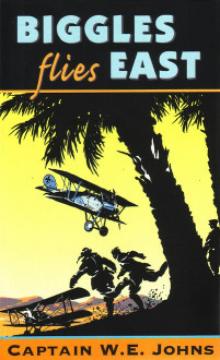 05 Biggles Flies East
05 Biggles Flies East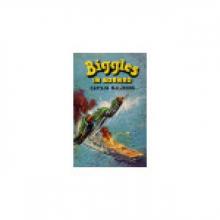 28 Biggles In Borneo
28 Biggles In Borneo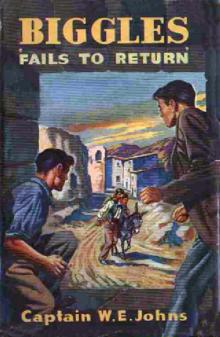 29 Biggles Fails to Return
29 Biggles Fails to Return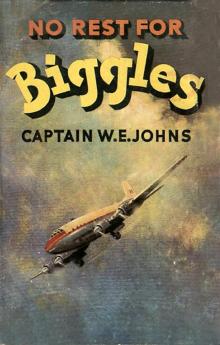 55 No Rest For Biggles (v2)
55 No Rest For Biggles (v2)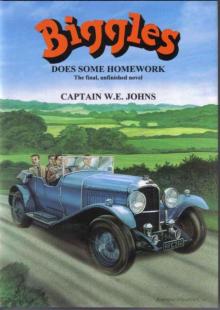 Biggles Does Some Homework
Biggles Does Some Homework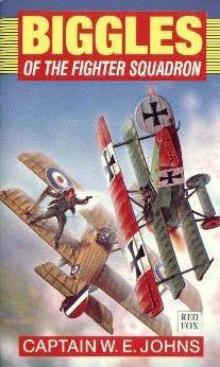 Biggles of the Camel Squadron
Biggles of the Camel Squadron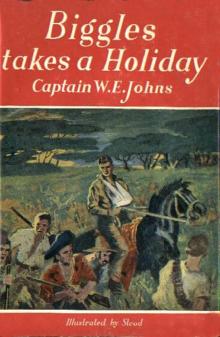 35 Biggles Takes A Holiday
35 Biggles Takes A Holiday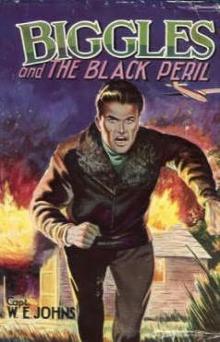 Biggles And The Black Peril (06)
Biggles And The Black Peril (06)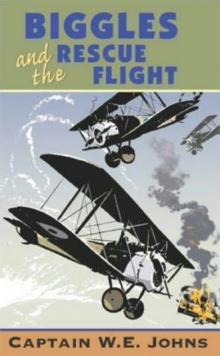 17 Biggles And The Rescue Flight
17 Biggles And The Rescue Flight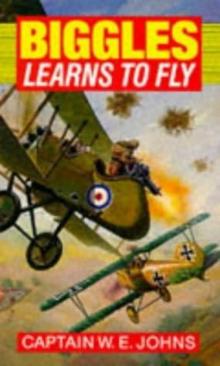 Biggles Learns To Fly
Biggles Learns To Fly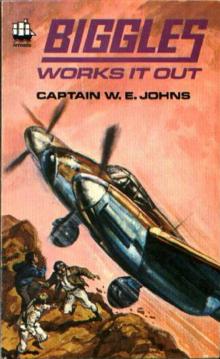 40 Biggles Works It Out
40 Biggles Works It Out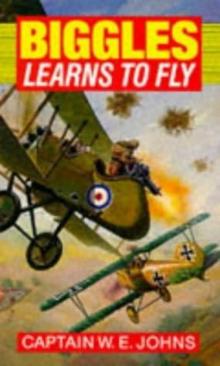 05 Biggles Learns To Fly
05 Biggles Learns To Fly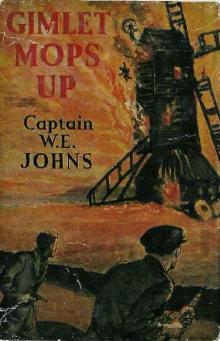 04 Gimlet Mops Up
04 Gimlet Mops Up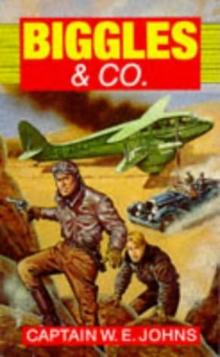 10 Biggles and Co
10 Biggles and Co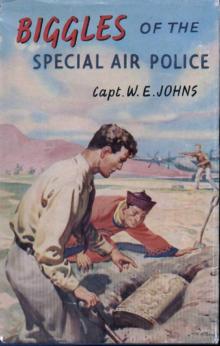 47 Biggles Of The Special Air Police
47 Biggles Of The Special Air Police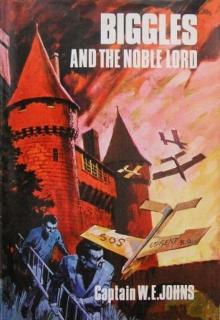 Biggles and the Noble Lord
Biggles and the Noble Lord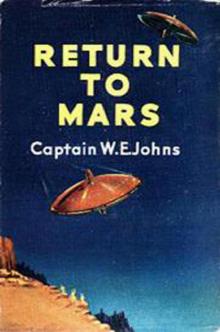 T2 Return To Mars
T2 Return To Mars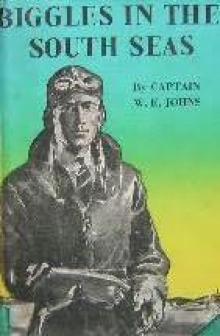 21 Biggles In the South Seas
21 Biggles In the South Seas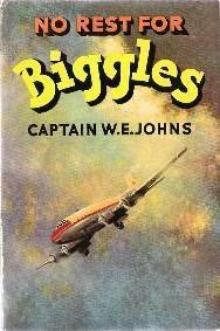 No Rest For Biggles
No Rest For Biggles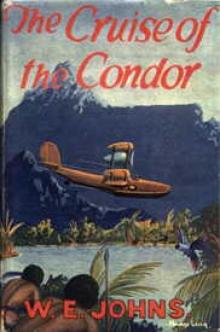 Biggles In The Cruise Of The Condor (02)
Biggles In The Cruise Of The Condor (02)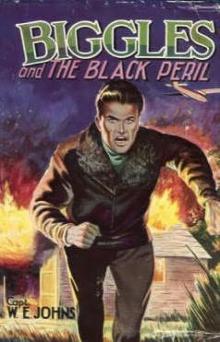 06 Biggles And The Black Peril
06 Biggles And The Black Peril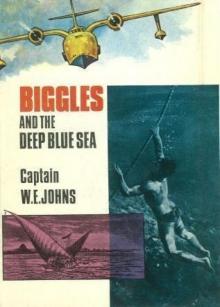 Biggles and the Deep Blue Sea
Biggles and the Deep Blue Sea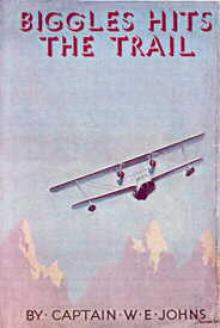 06 Biggles Hits The Trail
06 Biggles Hits The Trail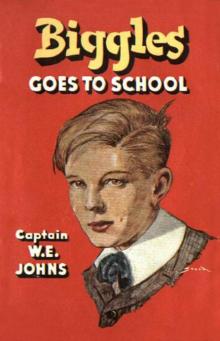 39 Biggles Goes To School
39 Biggles Goes To School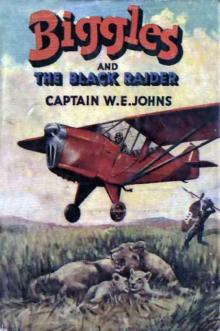 44 Biggles and the Black Raider
44 Biggles and the Black Raider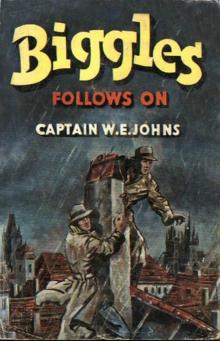 42 Biggles Follows On
42 Biggles Follows On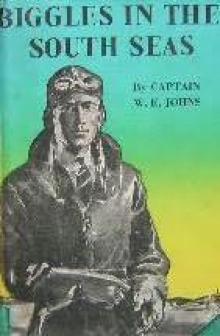 Biggles In the South Seas
Biggles In the South Seas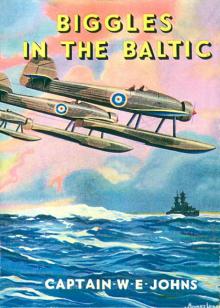 21 Biggles In The Baltic v3
21 Biggles In The Baltic v3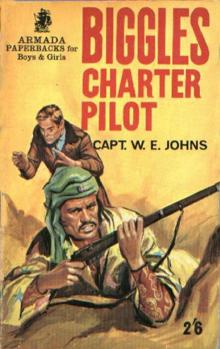 27 Biggles - Charter Pilot
27 Biggles - Charter Pilot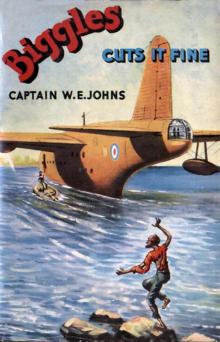 49 Biggles Cuts It Fine
49 Biggles Cuts It Fine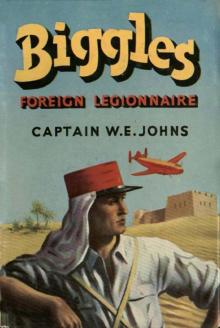 51 Biggles Foreign Legionaire
51 Biggles Foreign Legionaire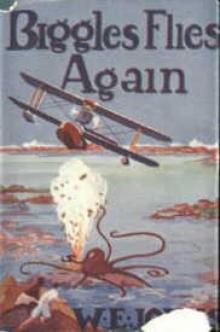 04 Biggles Flies Again
04 Biggles Flies Again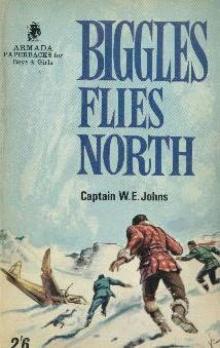 16 Biggles Flies North
16 Biggles Flies North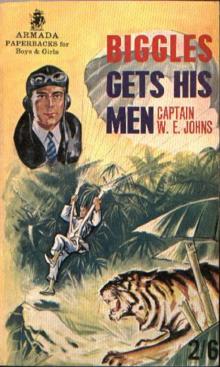 37 Biggles Gets His Men
37 Biggles Gets His Men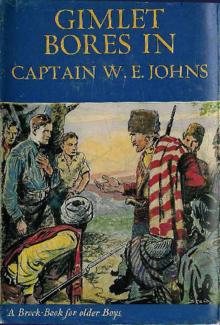 07 Gimlet Bores In
07 Gimlet Bores In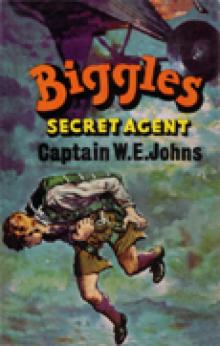 19 Biggles Secret Agent
19 Biggles Secret Agent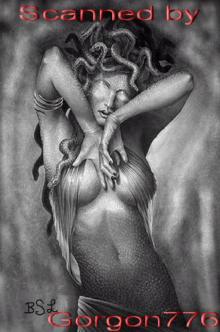 32 Biggles In The Orient
32 Biggles In The Orient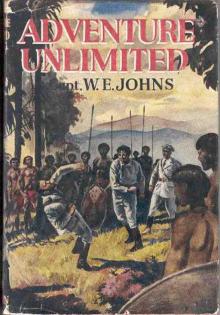 Adventure Unlimited
Adventure Unlimited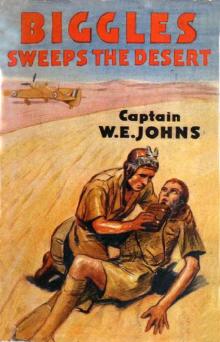 26 Biggles Sweeps The Desert
26 Biggles Sweeps The Desert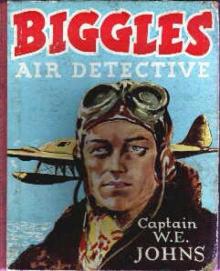 Biggles Air Detective (43)
Biggles Air Detective (43)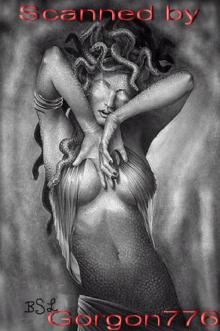 36 Biggles Breaks The Silence
36 Biggles Breaks The Silence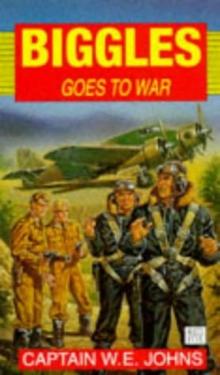 14 Biggles Goes To War
14 Biggles Goes To War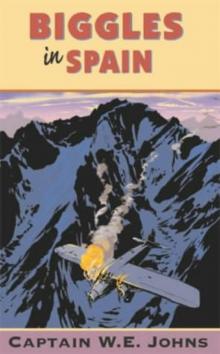 18 Biggles In Spain
18 Biggles In Spain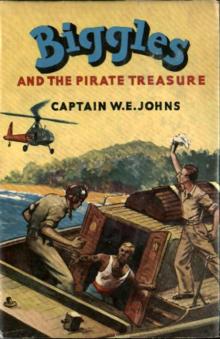 50 Biggles and the Pirate Treasure
50 Biggles and the Pirate Treasure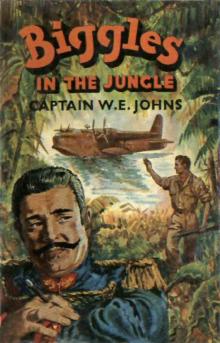 25 Biggles In The Jungle
25 Biggles In The Jungle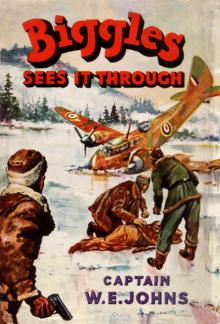 23 Biggles Sees It Through
23 Biggles Sees It Through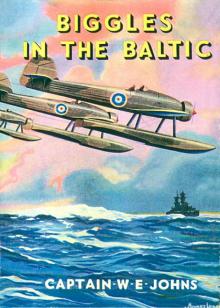 21 Biggles In The Baltic
21 Biggles In The Baltic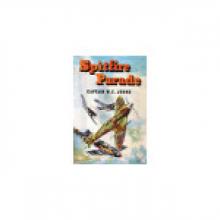 24 Spitfire Parade
24 Spitfire Parade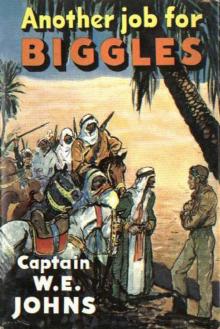 38 Another Job For Biggles
38 Another Job For Biggles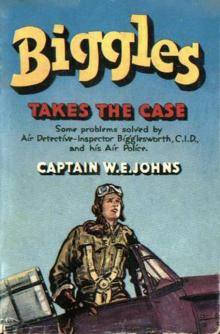 41 Biggles Takes The Case
41 Biggles Takes The Case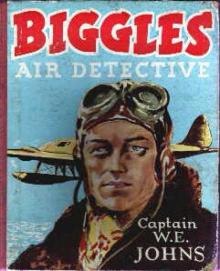 43 Biggles Air Detective
43 Biggles Air Detective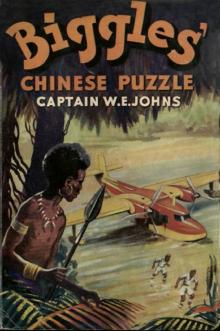 53 Biggles Chinese Puzzle
53 Biggles Chinese Puzzle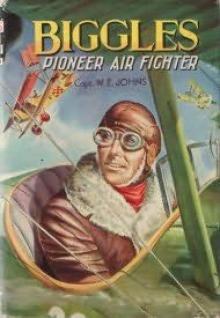 Biggles Pioneer Air Fighter (51)
Biggles Pioneer Air Fighter (51)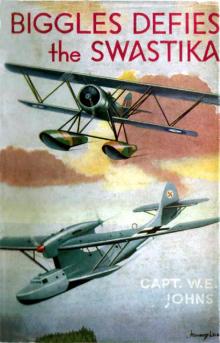 22 Biggles Defies The Swastika
22 Biggles Defies The Swastika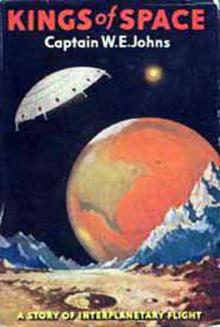 01 Kings Of Space
01 Kings Of Space